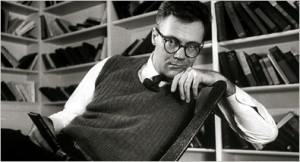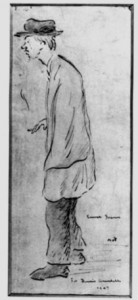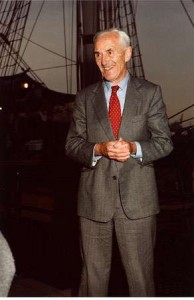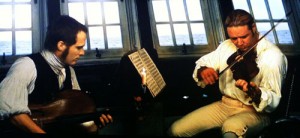 An excerpt from a rare film documentary showing Edward Hopper at work in his New York studio in 1965. He died two years after the film was released:
An excerpt from a rare film documentary showing Edward Hopper at work in his New York studio in 1965. He died two years after the film was released:
(This is the latest in a series of arts-related videos that appear in this space each Monday and Wednesday.)


 Mrs. T and I are staying at an
Mrs. T and I are staying at an  I wonder who reads
I wonder who reads  And if it is the fate of the likes of Lowell and Mailer to be forgotten, then what of me? About that I have no doubt at all: I’ll be lucky, like Max Beerbohm’s
And if it is the fate of the likes of Lowell and Mailer to be forgotten, then what of me? About that I have no doubt at all: I’ll be lucky, like Max Beerbohm’s 
 Today Mrs. T and I are vacationing on the coast of Maine. We’re also in the pleasant and singularly appropriate process of jointly rereading Patrick O’Brian’s twenty
Today Mrs. T and I are vacationing on the coast of Maine. We’re also in the pleasant and singularly appropriate process of jointly rereading Patrick O’Brian’s twenty  In addition, Jack and Stephen play a “D Minor double sonata” which is quite obviously a transcription for violin and cello of the Two-Violin Concerto, and once again O’Brian describes its finale so perceptively that those who know the piece will instantly recognize the passage he has in mind:
In addition, Jack and Stephen play a “D Minor double sonata” which is quite obviously a transcription for violin and cello of the Two-Violin Concerto, and once again O’Brian describes its finale so perceptively that those who know the piece will instantly recognize the passage he has in mind: